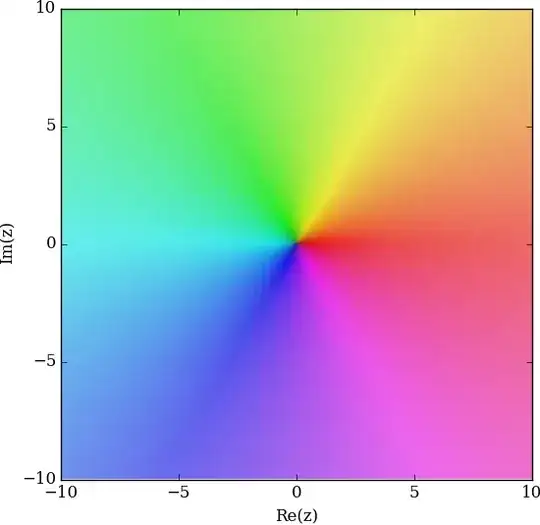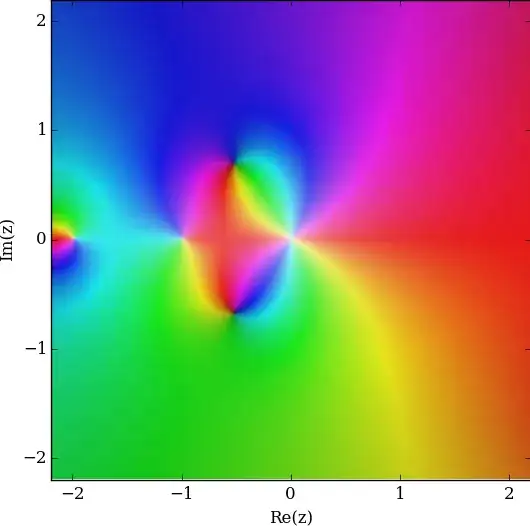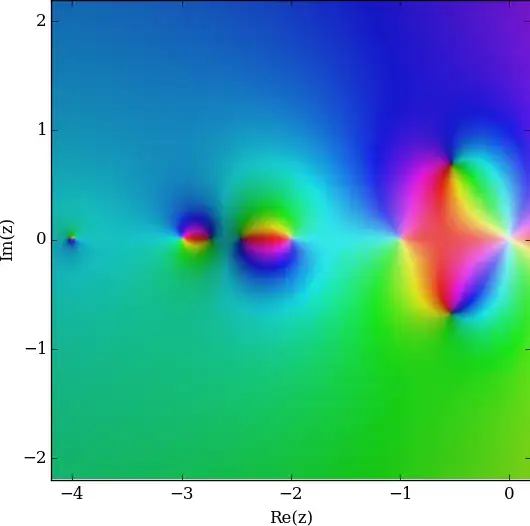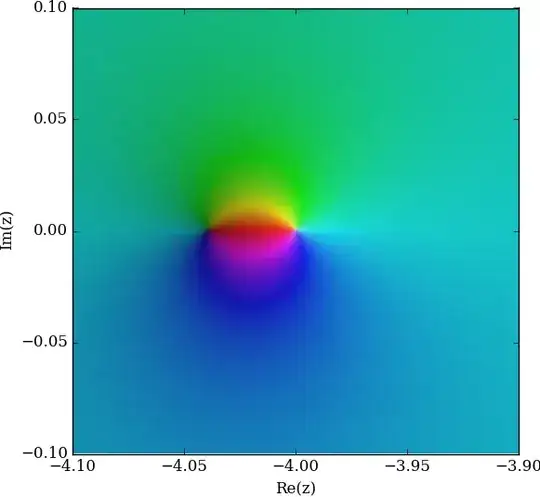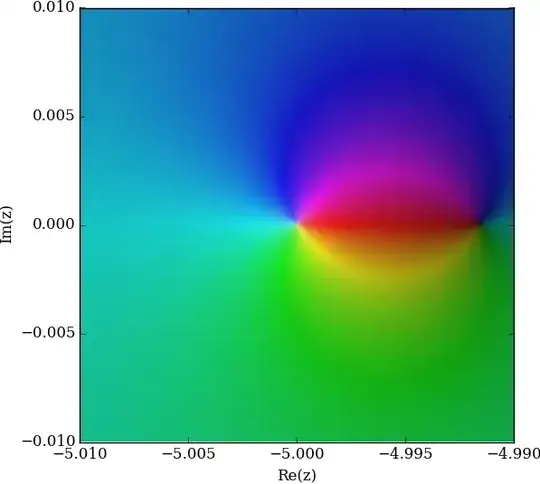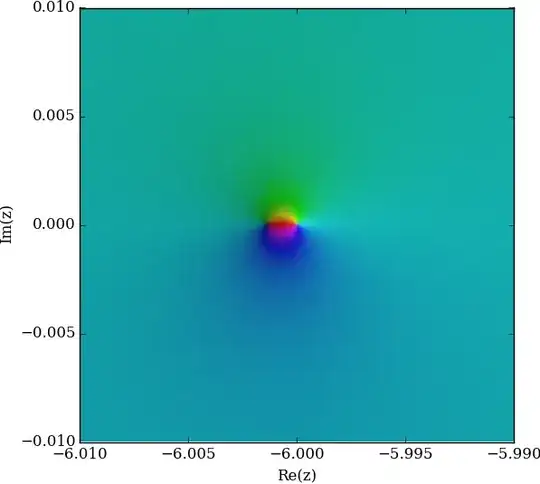I have a function defined as:
$f(z)=\frac{\Gamma{(z)}+1}{z}$
Are there any $z ∈ C$ (with nonzero imaginary part) such that $f(z)∈R$?
I tried substituting in $z=a+bi$ with $b≠0$ into the product and integral definitions of the Gamma function, but with little effect.
EDIT:
$f(z)=\frac{\Gamma{(z)}+1}{z}$
$f(a+bi)=\frac{\Gamma(a+bi)}{a+bi}+\frac{1}{a+bi}$
Introduce the variable $R$, denoting a real number. Then let $R=f(a+bi)$:
$R=\frac{\Gamma(a+bi)}{a+bi}+\frac{a-bi}{a^2+b^2}$
By definition $\Im(R)=0$. Re-arranging we get:
$R-\frac{a}{a^2+b^2}+\frac{b}{a^2+b^2}·i=\frac{\Gamma(a+bi)}{a+bi}$
Because $R$ can be any real number, the 'real' part of the equation may always be true for some R. Therefore, equating the $\Im$ parts of each side of the equation, we get:
$\frac{b}{b^2+a^2}=\Im(\frac{(a-bi)\Gamma(a+bi)}{a^2+b^2})$
Because $a,b$ are strictly real numbers, $a^2+b^2$ must be real and the same on both sides.
Therefore,
$b=\Im((a-bi)\Gamma(a+bi))$
$b=\Im((a\Gamma(a+bi)-bi\Gamma(a+bi))$
$b=a\Im(\Gamma(a+bi))-b\Re(\Gamma(a+bi))$
It follows that:
$\frac{b}{a}=\frac{\Im(\Gamma(a+bi))}{1+\Re(\Gamma(a+bi))}$
Adding 1 to both sides:
$\frac{b}{a}+1=\frac{\Im(\Gamma(a+bi))}{1+\Re(\Gamma(a+bi))}+\frac{1+\Re(\Gamma(a+bi))}{1+\Re(\Gamma(a+bi))}$
$\frac{b}{a}+1=\frac{\Gamma(a+bi)+1}{1+\Re(\Gamma(a+bi))}$
EDIT II It turns out I may have proceeded incorrectly in the last step. You see, the last equation re-arranges to:
$\frac{z}{\Re(z)} = \frac{\Gamma(z)+1}{1+\Re(\Gamma(z))}$
And consequently:
$\frac{1+\Re(\Gamma(a+bi))}{\Re(z)} = \frac{\Gamma(z)+1}{z}$, which is the normal, real number solution. (i.e. $b=0$).
If we go back a few steps and instead eliminate the real part, we get the following:
$\frac{b}{a}=\frac{\Im(\Gamma(a+bi))}{1+\Re(\Gamma(a+bi))}$
$\frac{a}{b}=\frac{1+\Re(\Gamma(a+bi))}{\Im(\Gamma(a+bi))}$
Now, adding 1, we get:
$\frac{a}{b}+1=\frac{1+\Re(\Gamma(a+bi))+\Im(\Gamma(a+bi))}{\Im(\Gamma(a+bi))}$
$\frac{z}{\Im(z)}=\frac{1+\Gamma(z)}{\Im(\Gamma(z))}$
Therefore, if $z=a+bi$ with $b≠0$ then the only time when $f(z)$ can be real is when:
$f(z)=\frac{\Im(\Gamma(z))}{\Im(z)}$
